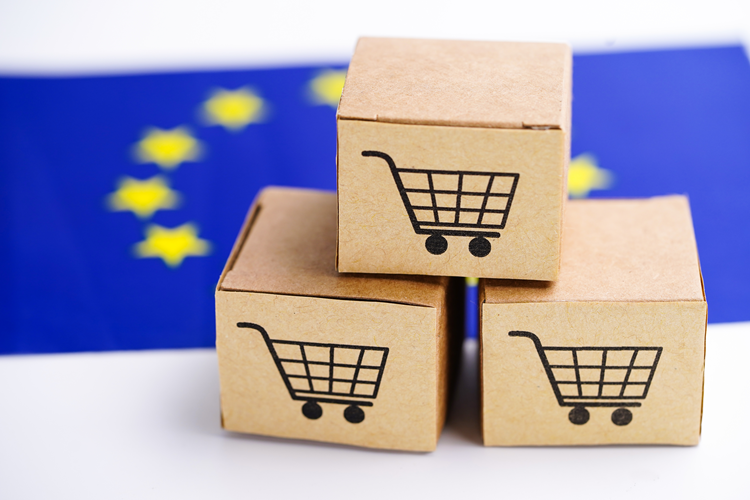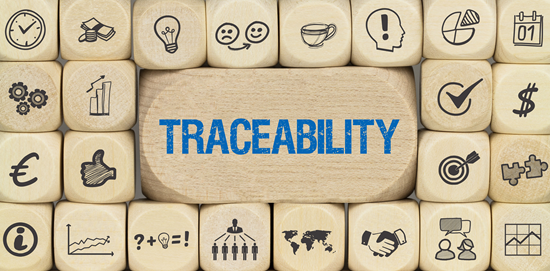New guidelines on what can be sold in the EU and Northern Ireland have brought existing rules up-to-date with the rise of digital commerce. Here's what you need to know...

The GPSR replaces the existing rules (The General Product Safety Directive 2001 and the Food Imitating Product Directive 1987) with the aim of bringing regulations up-to-date with the substantial growth in digital commerce.
The GPSR introduces new requirements in areas such as traceability to ensure transparency and product safety. These include:
- That businesses selling into the EU and Northern Ireland have a named point of contact on product safety (known as the ‘EU Responsible Person’)
- That products are traceable (for example, through a batch or serial number) in a way that is visible and accessible for consumers
- That businesses selling via an online platform verify compliance with GPSR requirements
Therefore, from 13th December 2024 to comply with the GPSR and related regulations, all business sellers listing items for sale (both new and second hand) in the EU and NI must include the following information:
- Name of the manufacturer –ie the record label (include address, electronic address / contact)
- Details of an officially mandated ‘EU Representative’ which could be an EU appointed representative or the EU Representative for the relevant label – this has to be a name and contact details (this cannot be based in the UK and must be an EU entity)
If you’re a seller, you will need to contact the manufacturer or your upstream supplier to obtain the name and contact details of the EU or NI-based Responsible Person. Some platforms will be collating this information for you within their systems as well to avoid you asking directly.
For major labels Amazon have started to add this information and we wait to see if Independent label information follows.
There are further legal and record-keeping requirements for both the ‘manufacturer’ and the ‘EU representative’.
For detailed Government information, read the full detail here.
GPSR
There is currently a lot of uncertainty about how the new GPSR regulations will be interpreted and implemented, but if you’re selling into the EU or NI, we hope this Q&A is useful.
What is GPSR?

GPSR (or General Product Safety Regulation) is a new EU law which requires Manufacturers to ensure that all products they sell in the EU (and, importantly, Northern Ireland) are ‘safe’ for use by consumers; to maintain a paper trail that documents the safety of those products; and adds some labelling requirements for products to be GPRS compliant when made available for sale.
What’s the idea behind GPSR?
GPSR is intended to protect consumers from poor quality and potentially unsafe products coming into Europe from places like the Far East, and gives the entire sales chain, from the ‘Manufacturer’, importers and distributors, online marketing platforms and retailers certain responsibilities to ensure the goods they’re selling are safe, with a clear route for consumers to report problems. While this may seem a bit over the top for products like vinyl and CDs that have been used safely for decades, that’s the framework these new rules have been built around. It brings almost all consumer products under the same safety and labelling rules for the first time.
When did GPSR arrive?
The regulation was passed into EU law in 2023, but came into effect on December 13 2024, meaning that, in theory, almost all products sold in the EU after that date are supposed to be compliant with the new rules.
The products I sell have been perfectly safely for a very long time – surely I don’t need to prove that?
Unfortunately, you need to be seen to do so, and you need to provide labelling on products to allow consumers to contact you with any concerns.
What are the requirements of GPSR?
Broadly speaking, the following obligations are being imposed on Manufacturers:
- Ensure only ‘safe’ products are sold in the EU.
- Carry out a risk assessment to assess the safety of a product, and keep documentation relating to that analysis for 10 years.
- Ensure the product bears a number, or other ‘element allowing identification’, which is easily visible and legible for consumers. A catalogue number and/or barcode is sufficient, although there is often more detailed batch info included in some products.
- Ensure each product carries your business or trading name, postal address and electronic address (either an email or website contact address) of a single point of contact for consumers to contact you.
- If your business is based outside the EU, appoint a ‘Responsible Person’ who must be located inside the EU (or Northern Ireland) to verify your adherence to the Regulation. The name, postal address and electronic address of the Responsible Person also needs to be displayed on every product.
- The same contact information needs to be carried on any online platforms, such as Amazon/eBay, etc.
How do I include this information on products?
The contact information can be in the form of a sticker (on each item, not the box packaging).
How is a ‘Manufacturer’ defined by the Regulation?
A Manufacturer is defined as the entity with its brand on the product. Ultimately, responsibility lies with brand to ensure products are safe.
What form does the risk assessment need to take?
There is no defined format, but in the fullness of time we are hoping these documents will become more or less standardised across the industry for each standard format. The required documentation is known as a ‘technical file’ and should contain details of the item, manufacturing info (which you should be able to get from your manufacturing partners), and an assessment of any safety issues the product might raise. Assuming that the analysis deems the product to be ‘safe’ under the scope of the law there is no requirement to include safety info or operating instructions with the product.

The technical file on each product must be held for at least 10 years, and can be produced on demand if anyone in the supply chain down to the consumer requests it. It can be added to during the life of the product. Our understanding is that similar products can be grouped together under one technical file, but this is not 100% clear.
Who can act as a ‘responsible person’?
‘Responsible person’ is a legal term but could be a related company, an importer, a distributor or a third party offering this as a service (although it appears the latter can get very expensive). You only need one EU representative to cover all products for sale in the EU, but you need to get their permission to do this as they will also have similar legal responsibilities to the Manufacturer. In practice, this probably just means acting as a conduit for any customer concerns or complaints they receive.
What products do the rules apply to?
Almost all goods sold in the EU (and Northern Ireland), whether they are new items, catalogue items, or used items. The rules apply to goods sold within the EU or from outside; D2C and B2B (where the end user is a consumer); and irrespective of where they are manufactured. If you’re selling products into the EU, either directly or via distributors, this Regulation applies to you.
It is understood that products that have already been exported into the EU before December 13th will not need to be labelled for compliance, but it should probably be assumed that anything delivered into the EU after that date, whether by mail order or via distribution, should be to avoid complications.
Is there anything else I need to do?
Online Marketplace sellers (such as Amazon and eBay) and retailers are also required to publish the label’s GPSR contact info on their products if they’re selling into the EU. That means you need to include the info on your online shop, and other sellers need to have somewhere to get the info they need to make their listings compliant. We recommend you update the contact info on your website with the appropriate GPSR contact info as soon as possible, and make sure that any distribution partners have access to the information too.
What happens if my products are not compliant?
In theory, fines and even imprisonment are possible for violating the rules and selling unsafe products. In practice, we think the risk of enforcement action being taken against a independent retailer is pretty low. However, it is important to abide by the Regulation.
Some retailers (including, at the time of writing, Amazon) may refuse to carry products that are not compliant, which should sharpen the mind.
How will the rules be enforced?
Retailers and Online Marketing Platforms are expected to be self-policing on this, but there is the possibility that some sellers maybe challenged for selling unsafe products. We understand there will be spot checks on goods imported into the EU by customs officials, as part of their usual checks. It is possible that shipments could be delayed or rejected altogether if they are not compliant. It’s not yet clear exactly what will happen in practice.
Where can I get more info?
There is a lot of info online, although it tends to be fairly generic without explaining how to go about getting your products compliant. The full GPSR regulation document is available online so you can make your own assessment. There’s a UK Government factsheet. It’s worth noting that this guidance suggests that products that have been made available prior to Dec 13th 2024 (under Article 51 of the Regulation) do not need to be compliant to remain on sale in the EU, but other experts seem to contradict this, and it does seem to be open to interpretation, so we’ve erred on the side of caution above. It seems to depend on who’s making it available – the manufacturer or a third-party seller, and the latter will need the relevant info if they add your item to their inventory. You can also ask specific questions of the government via the government’s Export support service.
Amazon & eBay have resources available for sellers.
We also recommend you talk to your distributors and manufacturers for more info.
Bira's advocacy takes your voice to the heart of Parliament
Bira is at the forefront of championing the cause of independent traders and shopkeepers across Britain.
Our campaigns cover a wide spectrum of issues crucial to the success of independent traders including:
- Combatting the rising tide of retail crime
- Advocating for changes in legislation that promote fairness and flexibility
- Fighting for fairer business rates
- Overall reducing the regulatory burden
- £1 billion damages claim against Amazon by UK retailers
Latest Resources
-
Exclusive webinar with Bira & WorkNest on contracts & handbooks | Watch back and read the FAQ
An Employment Law expert from the Bira Legal advice line team presented an essential overview of contracts and handbooks in this webinar exclusive to Bira members.
-
Campaign Focus | February 2026
The Government's "shocking" policy on business rates, knife selling and the Employment Rights Act are among the areas of focus for Bira this month.